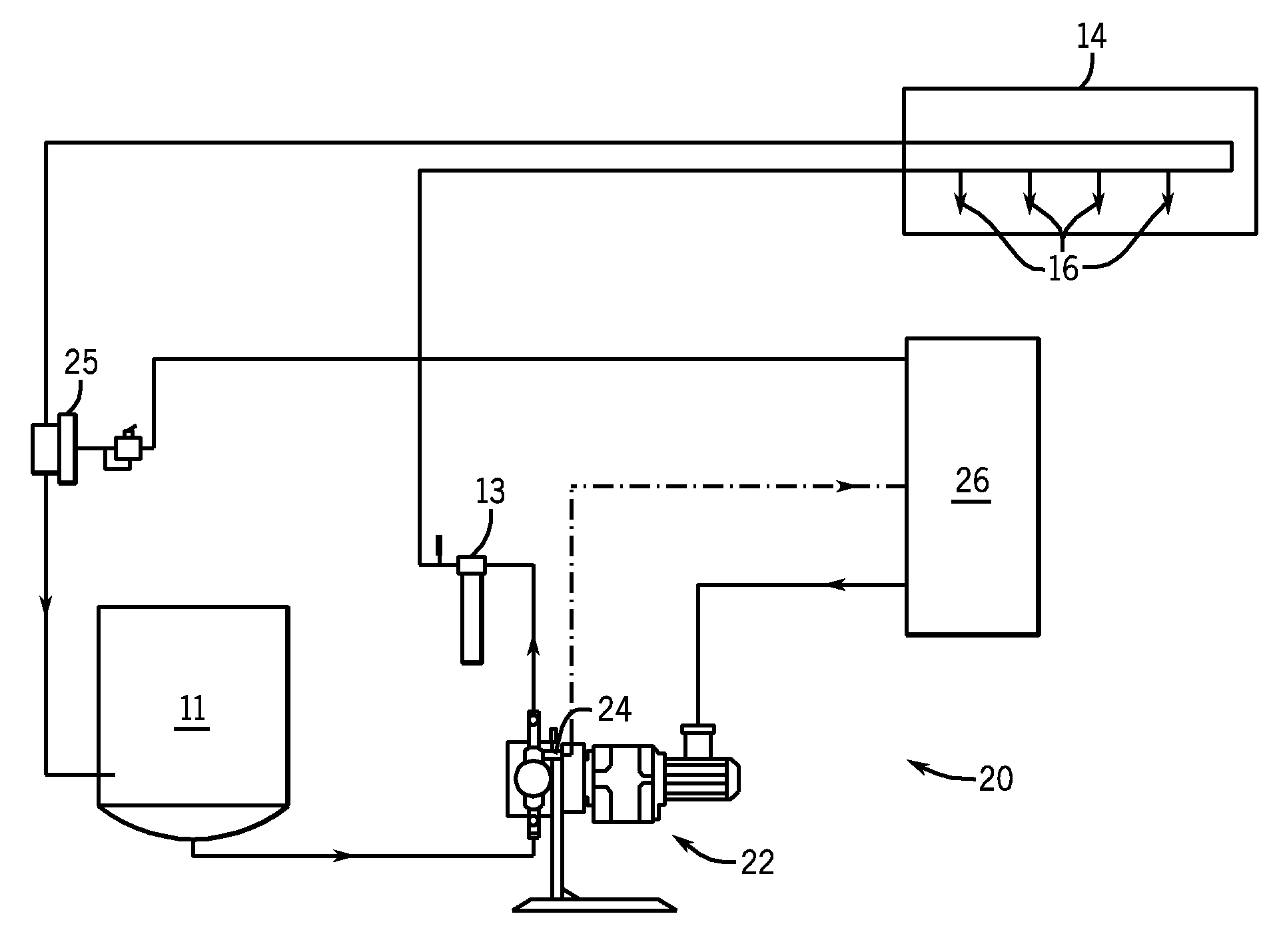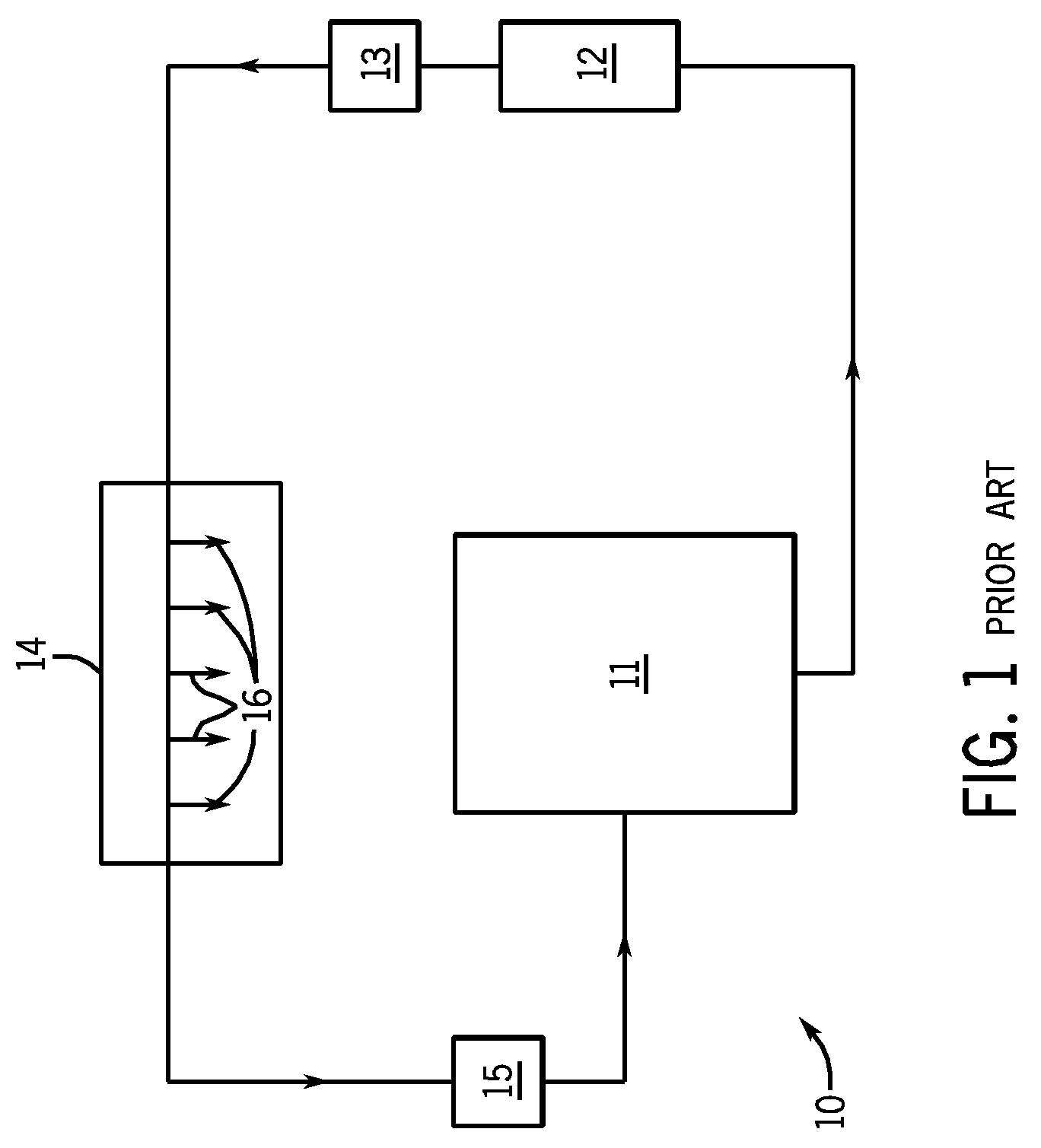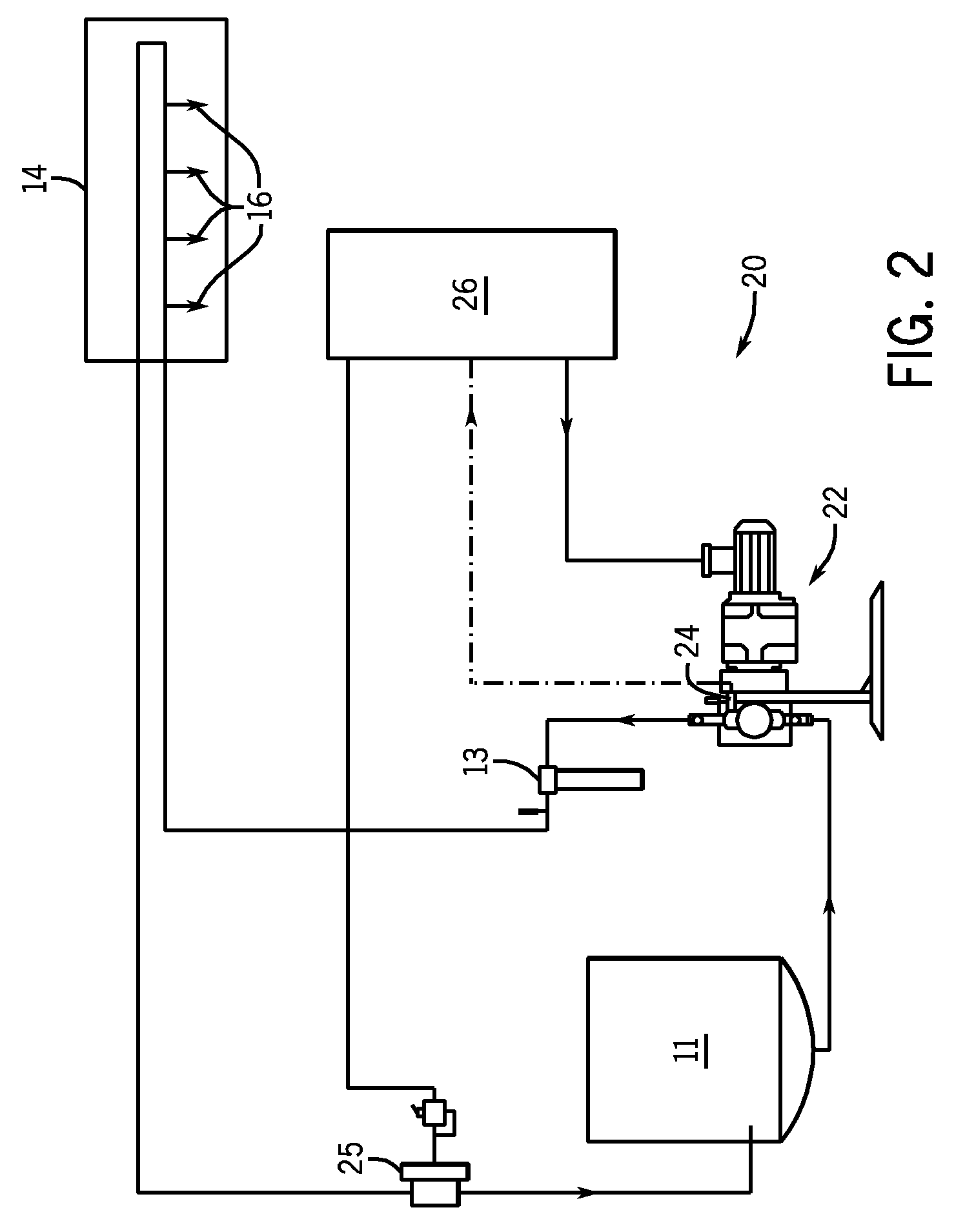Paint circulating system and method
a circulating system and paint technology, applied in the direction of service pipe systems, machines/engines, positive displacement liquid engines, etc., can solve the problems of high energy consumption, high cost, and high cost of maintenance and repair, and achieve the effect of repair, and reducing the cost of maintenan
- Summary
- Abstract
- Description
- Claims
- Application Information
AI Technical Summary
Benefits of technology
Problems solved by technology
Method used
Image
Examples
Embodiment Construction
[0019]Referring to FIG. 1, a paint circulation system 10 includes a paint tank 11 containing a reservoir of liquid paint. A pump 12 is operable to supply paint from the paint tank 11, optionally through a paint filter 13, to a spray booth 14. The spray booth 14 typically includes one or more applicators 16. For example these may be spray nozzles manipulated by robot arms. Any unused paint flows past the spray booth and is returned to the paint tank 11 via a BPR 15.
[0020]In this set-up, the BPR 15 is employed to control the upstream pressure in the system at the desired level, typically 5 to 10 bar when the paint is in use. The BPR 15 typically includes a diaphragm, one side of which is acted upon by a coiled spring.
[0021]The pressure of paint entering the BPR 15 urges the diaphragm against the spring force to open up a passage for paint. Any reduction in paint pressure results in the diaphragm moving under the spring force, tending to close the passage. This acts as a restriction to...
PUM
 Login to View More
Login to View More Abstract
Description
Claims
Application Information
 Login to View More
Login to View More - R&D
- Intellectual Property
- Life Sciences
- Materials
- Tech Scout
- Unparalleled Data Quality
- Higher Quality Content
- 60% Fewer Hallucinations
Browse by: Latest US Patents, China's latest patents, Technical Efficacy Thesaurus, Application Domain, Technology Topic, Popular Technical Reports.
© 2025 PatSnap. All rights reserved.Legal|Privacy policy|Modern Slavery Act Transparency Statement|Sitemap|About US| Contact US: help@patsnap.com



